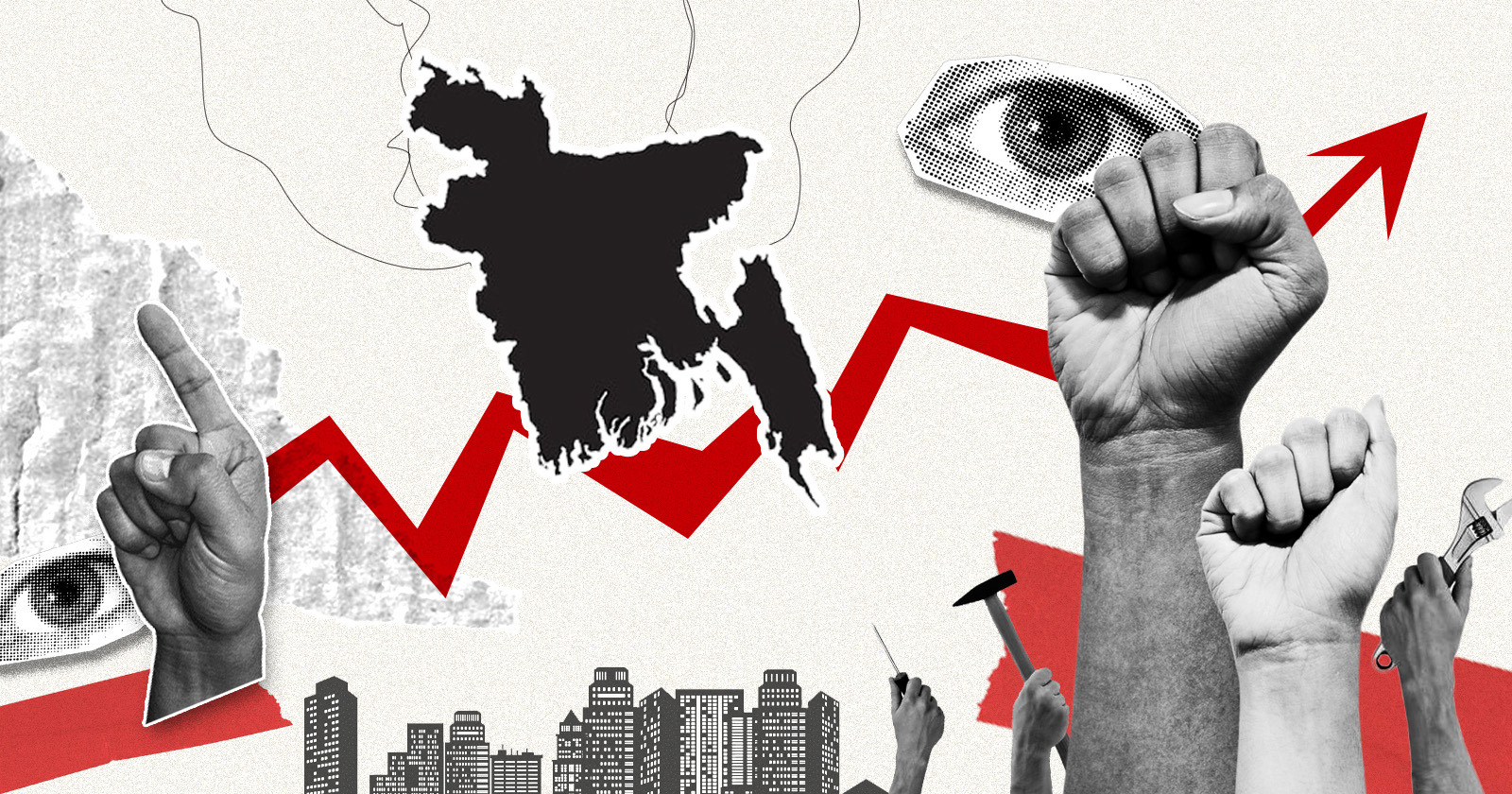Is the government’s inefficiency or purposeful leniency not a threat to democracy?

With almost every new day, we, the ordinary people, are forced to see a new height of grotesque mob violence, with our social media flooded with horrifying descriptions, images, and videos. The phenomenon hit yet another low as the body of a deceased person was exhumed, assaulted, and burnt; and, of course, law enforcers were attacked. Put simply, the reason behind many attacks and mob violence is some group's claim that their political, social or some other sentiment was "hurt." Under these circumstances, we need to reflect on the actions of the state, which has been failing catastrophically to ensure minimum order. Because who knows whose action will "hurt" whose sentiment tomorrow?
More than a year has passed since the interim government took power with a promise of institutional reform by reversing democratic backsliding and upholding democratic values. Apart from the meetings of the reform commissions, the government appears far from upholding the least of those values—civil order, justice, or rule of law.
A core function of any government is to maintain order and protect its citizens regardless of their identity, race, gender, religious beliefs, or political leanings. Now, after 14 months of this government, multiple examples can be found in almost all of these categories where the government failed to protect the people. Moreover, there have been violent attacks on police and police stations, which should have raised more concern nationwide. Even many preannounced mob attacks based on differences in beliefs or opinions took place, sometimes in the presence of law enforcement. Even the army's magistracy power could not help contain the frequent mob violence we are witnessing.
Let us rewind a bit. Although the interim government has criticised the Rajbari incident with strong language, "mob violence" was not acknowledged. Earlier this year, the attack and vandalism that took place in Sheikh Mujibar Rahman's residence in Dhanmondi 32 did not generate a strong condemnation from the government. The interim government gave in to the demands of the "mob" when it abolished the Textbook Review and Revision Committee. A cursory statement of condemnation was seen when the members of the Women's Affairs Reform Commission were attacked and bullied by the right-wing forces. Instead of adhering to due process, countless false cases have been filed against Awami League leaders and supporters. Stakeholders of the government, on multiple occasions, reminded the people about the previous regime's misdeeds whenever such grave violations of rule and order took place. People demanding justice or criticising the government's inaction have faced online harassment and threats. The example goes on.
According to the Ain O Salish Kendra, at least 124 people were killed in mob violence between January and August this year. Different cultural events and girls' football matches have been cancelled due to threats from some right-wing groups. However, we have yet to see initiatives that send a message of confidence that justice will be ensured for these people.
Who are these mobs? At this point, it is hard to miss the pattern. It is either right-wing groups or radical religious quarters. They have been announcing their strong presence online and offline. Political analysts and human rights activists have been warning about their resurgence since the July uprising. The question is, how did they then become so powerful despite these alarms? Did the government capitulate to these extremist groups? It seems they are being given space deliberately, which is a fundamental rejection of core democratic values and a complete disregard for the rule of law.
The voiceless people—women, labourers, or minority groups—have been deceived once again by the people in power. They are living amidst increasing threats of right-wing forces and government inaction. Would it be an overstatement to say that the interim government is making a way for majoritarian authoritarianism? They have signalled that violence, coercion, and vengeance are effective political tools when used in favour of people in power. They have categorically destroyed the last remaining trust in state institutions and normalised attacks on them. And as the election is coming closer, the political balance and landscape are being severely damaged by their inaction.
As the world celebrates the International Day of Democracy, Bangladesh appears to be on its way to an accelerated democratic backsliding. It's not uncommon in world history for the stakeholders of such political shifts to become even more authoritarian than the previous powerholders. But this historical knowledge neither provides solace nor gives hope; it just confirms that the paranoia is justified.
Jannatul Mawa works in online education and youth development.
Views expressed in this article are the author's own.
Follow The Daily Star Opinion on Facebook for the latest opinions, commentaries and analyses by experts and professionals. To contribute your article or letter to The Daily Star Opinion, see our guidelines for submission.




 For all latest news, follow The Daily Star's Google News channel.
For all latest news, follow The Daily Star's Google News channel. 

Comments